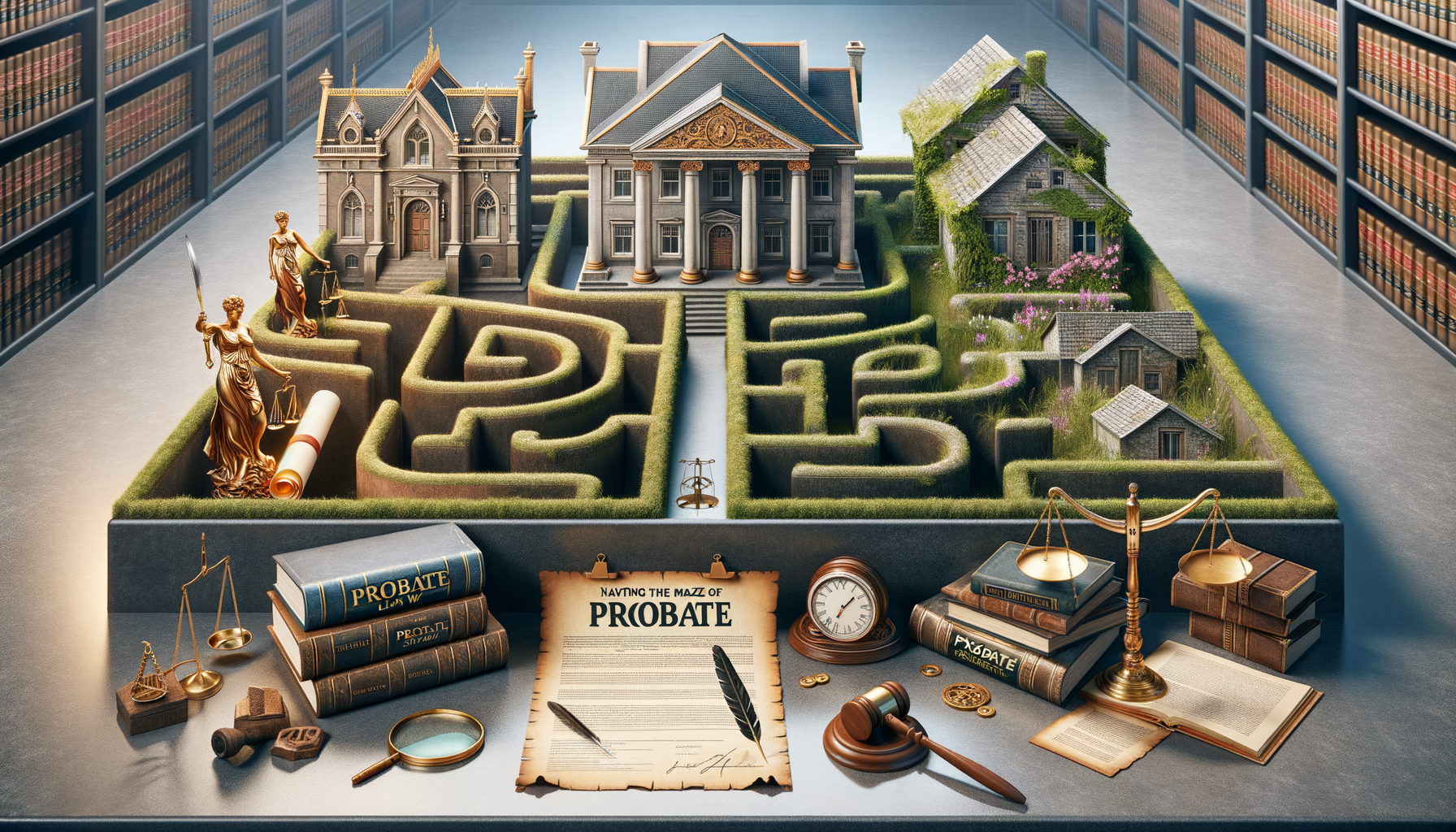Understanding the Role of a Probate Lawyer
When faced with the daunting task of navigating the probate process, the assistance of a probate lawyer can be invaluable. These legal professionals specialize in guiding executors and beneficiaries through the complexities of probate law, ensuring that the deceased’s estate is handled according to their wishes and legal requirements. A probate lawyer near you can offer personalized support, understanding the local laws and regulations that may affect the probate process.
Probate lawyers provide a range of services, including filing the necessary paperwork with the court, representing the estate in legal proceedings, and advising on the distribution of assets. Their expertise can help prevent costly mistakes and delays, which are common pitfalls for those unfamiliar with probate proceedings. Moreover, having a knowledgeable attorney can offer peace of mind during a challenging time, allowing you to focus on honoring the memory of your loved one.
Engaging a probate lawyer early in the process can also facilitate smoother communication among beneficiaries, reducing the potential for disputes and misunderstandings. They can mediate conflicts and provide clarity on the legal obligations of executors, ultimately ensuring that the estate is settled efficiently and fairly.
The Importance of a Probate Lawyer Consultation
Before diving into the intricacies of probate, a consultation with a probate lawyer can provide clarity and direction. During this initial meeting, the lawyer will assess the estate’s complexity, identify potential challenges, and outline the steps necessary to move forward. This consultation is an opportunity to ask questions, understand the costs involved, and determine the best course of action for your specific situation.
Probate lawyer consultations are typically tailored to the unique circumstances of each estate. The lawyer will review documents such as the will, trust agreements, and any relevant financial records. This comprehensive evaluation allows them to identify any legal issues that may arise, such as contested wills or unclear beneficiary designations.
A significant advantage of consulting with a probate lawyer is gaining access to their experience and insights. They can provide valuable advice on minimizing estate taxes, managing creditors, and ensuring compliance with state laws. This proactive approach can prevent complications and streamline the probate process, ultimately saving time and resources.
In summary, a probate lawyer consultation is a crucial step in estate planning, offering a roadmap for navigating probate with confidence and efficiency.
How to File for Probate
Filing for probate is a fundamental step in administering a deceased person’s estate. It involves a legal process where the will is validated, and the executor is granted the authority to manage the estate’s affairs. Understanding how to file for probate can demystify the process and ensure that it is handled correctly.
The first step in filing for probate is to locate the deceased’s will, if one exists. The executor named in the will is responsible for initiating the probate process by submitting the will to the probate court. If no will is found, the court will appoint an administrator to oversee the estate.
Once the will is submitted, the executor must file a petition for probate, which includes essential information about the deceased, their assets, and the beneficiaries. This petition is accompanied by a death certificate and any other required documentation. The court will then review the petition and, if everything is in order, issue a probate order.
After the probate order is granted, the executor must inventory the estate’s assets, pay any outstanding debts and taxes, and distribute the remaining assets to the beneficiaries. This process can be time-consuming and requires meticulous attention to detail, highlighting the importance of having a probate lawyer to guide you through each step.
In conclusion, understanding how to file for probate is essential for executors, ensuring that the estate is administered efficiently and according to the deceased’s wishes.
Probate vs. Non-Probate Assets
One of the key distinctions in estate planning is between probate and non-probate assets. This differentiation significantly impacts how assets are transferred after death and can influence the overall probate process.
Probate assets are those that are solely in the name of the deceased and do not have a designated beneficiary. These assets typically include real estate, personal property, and bank accounts that are not jointly owned or do not have a payable-on-death designation. Such assets must go through the probate process, where the court oversees their distribution according to the will or state law.
On the other hand, non-probate assets bypass the probate process entirely. These assets have a designated beneficiary or are jointly owned with rights of survivorship. Examples include life insurance policies, retirement accounts with named beneficiaries, and jointly owned property. Because these assets are transferred directly to the beneficiaries upon death, they are not subject to the delays and costs associated with probate.
Understanding the distinction between probate and non-probate assets is crucial for effective estate planning. By strategically designating assets as non-probate, individuals can ensure a more efficient transfer of wealth, minimizing the time and expense involved. Consulting with a probate lawyer can help identify which assets fall into each category and develop a comprehensive plan that aligns with your estate planning goals.
In summary, differentiating between probate and non-probate assets is a fundamental aspect of estate planning, offering opportunities to streamline the distribution of assets and reduce the burden on beneficiaries.
Conclusion: Navigating Probate with Confidence
In conclusion, understanding the probate process and the role of a probate lawyer is essential for anyone involved in estate planning or administration. From the initial consultation to the final distribution of assets, a probate lawyer provides invaluable support and expertise, ensuring that the estate is handled efficiently and in accordance with the law.
The distinction between probate and non-probate assets further highlights the importance of strategic estate planning. By identifying and managing these assets effectively, individuals can minimize the complexities of probate and ensure a smoother transition of wealth to their beneficiaries.
Ultimately, navigating the probate process with confidence requires careful planning, informed decision-making, and the guidance of a skilled probate lawyer. By taking these steps, you can honor the wishes of your loved ones and secure a legacy that reflects their values and intentions.








